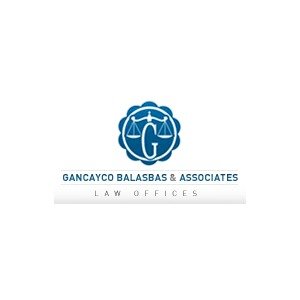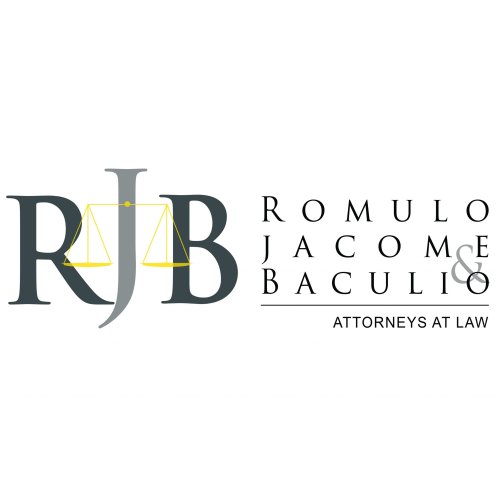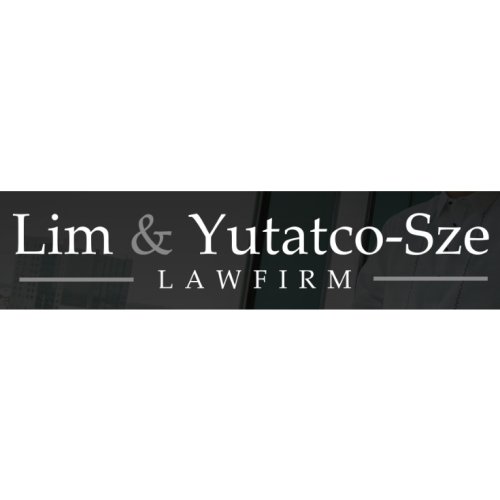Best Government Relations & Lobbying Lawyers in Manila
Share your needs with us, get contacted by law firms.
Free. Takes 2 min.
List of the best lawyers in Manila, Philippines
About Government Relations & Lobbying Law in Manila, Philippines
Government relations and lobbying in Manila, Philippines, involves engaging with government officials and agencies to influence public policy and decision-making processes. It plays a significant role in shaping legislation and regulations that affect various sectors and industries. Lobbyists work to build relationships with policymakers to advocate for specific interests, from business concerns to social issues. In Manila, this field is regulated to ensure transparency and fairness in the government process.
Why You May Need a Lawyer
Engaging in government relations and lobbying in Manila can be complex due to the regulatory landscape. Legal assistance may be needed in situations such as:
- Understanding and complying with lobbying regulations to avoid legal penalties.
- Assisting in the drafting of policy proposals or positions to be presented to government entities.
- Navigating interactions with government officials to ensure compliance with ethical standards.
- Resolving disputes that may arise from lobbying efforts or government relations activities.
- Advising on strategic communication and advocacy approaches.
Local Laws Overview
The Philippines has laws and regulations aimed at governing lobbying activities to promote transparency and accountability. Key aspects of the local laws include:
- Registration of lobbyists to ensure that those engaging in lobbying are documented and their activities monitored.
- Disclosure requirements mandating lobbyists to report their activities, clients, and expenditures.
- Anti-corruption statutes that prohibit bribery and unethical influence over government officials.
- Ethical standards that guide interactions with government officials to prevent conflicts of interest.
Frequently Asked Questions
What is the definition of lobbying in the Philippines?
Lobbying in the Philippines generally refers to the act of attempting to influence government decisions, usually through direct interaction with public officials.
Do lobbyists need to register with the government in Manila?
Yes, lobbyists are typically required to register with the appropriate government bodies to ensure transparency and accountability in their activities.
What are the consequences of non-compliance with lobbying regulations?
Penalties for non-compliance can include fines, suspension from lobbying activities, or legal prosecution for serious violations.
How do I know if I need a government relations lawyer?
If you are engaging in activities that involve influencing public policy or interacting with government officials, consulting with a lawyer can ensure compliance and protect your interests.
Can anyone become a lobbyist in the Philippines?
While anyone can technically become a lobbyist, it requires adherence to registration and disclosure regulations, as well as following ethical standards.
Are there ethical guidelines for lobbyists in Manila?
Yes, lobbyists must adhere to ethical guidelines that prevent undue influence, bribery, and ensure transparency in their dealings with government officials.
Where can I find the official regulations on lobbying in the Philippines?
Regulations can be found through government websites, such as those of the Department of Justice or legislative bodies. Engaging with a lawyer can also help interpret these regulations.
What are the key elements of a successful lobbying strategy?
A successful lobbying strategy often includes clear objectives, strong stakeholder relationships, and consistent compliance with regulations and ethical standards.
Do lobbyists have a limit on how much they can spend on lobbying activities?
There are often disclosure requirements for lobbying expenditures, and these may vary depending on the jurisdiction. Consulting with legal experts is advisable for specific guidance.
Can foreign entities engage in lobbying in Manila?
Yes, but they must follow the same registration and compliance requirements as local entities, and additional regulations may apply to foreign entities.
Additional Resources
For further assistance, you may consider reaching out to the following resources:
- The Department of Justice for information on legal frameworks and compliance.
- The Philippine Public Affairs and Communication Society, which provides advocacy resources.
- The Office of the Ombudsman for matters related to anti-corruption and ethical standards.
Next Steps
If you require legal assistance in government relations and lobbying in Manila, consider taking the following steps:
- Identify your goals and the specific government policies you wish to influence.
- Consult with a lawyer specializing in government relations and lobbying to understand the legal requirements and options available to you.
- Ensure compliance with all registration and disclosure requirements, as well as adherence to ethical standards.
- Develop a comprehensive strategy that includes both legal advice and strategic communication efforts.
Lawzana helps you find the best lawyers and law firms in Manila through a curated and pre-screened list of qualified legal professionals. Our platform offers rankings and detailed profiles of attorneys and law firms, allowing you to compare based on practice areas, including Government Relations & Lobbying, experience, and client feedback.
Each profile includes a description of the firm's areas of practice, client reviews, team members and partners, year of establishment, spoken languages, office locations, contact information, social media presence, and any published articles or resources. Most firms on our platform speak English and are experienced in both local and international legal matters.
Get a quote from top-rated law firms in Manila, Philippines — quickly, securely, and without unnecessary hassle.
Disclaimer:
The information provided on this page is for general informational purposes only and does not constitute legal advice. While we strive to ensure the accuracy and relevance of the content, legal information may change over time, and interpretations of the law can vary. You should always consult with a qualified legal professional for advice specific to your situation.
We disclaim all liability for actions taken or not taken based on the content of this page. If you believe any information is incorrect or outdated, please contact us, and we will review and update it where appropriate.

















